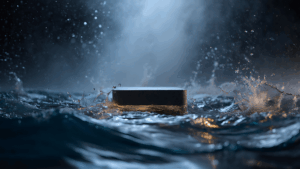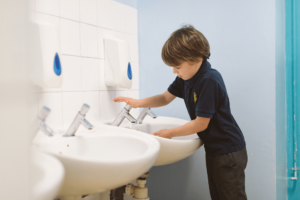The UK wine industry is booming. There has been a big increase in UK wine production over the past few years. In 2020 alone, 1.4m vines were planted across 800 vineyards. As you’d expect, the south of England accounts for 98% of the vineyards, but there are also wine growers in Wales and Scotland.
Moreover, the effects of global warming likely result in more wine grown and produced in the UK over the coming years, with an increase in vineyards being planted further north. This raises the question of sustainability.
Growing vines is water-intensive. Recognising that the UK wine industry needs to become more sustainable, WineGB, the national association for the English and Welsh wine industry, launched Sustainable WineGB in 2020. Sustainable WineGB has many objectives, including to “reduce the volume of water used per bottle of wine” and to “deploy an environmentally responsible wastewater management system”.
So what measures can vineyards take to become more water efficient and reduce water bills?
Water efficiency for vineyards
At its Sustainability in the Vineyard conference in 2021, the UK organisation Sustainable Wine held a session about water use in the wine industry. The discussion was focused on water efficiency and sustainability, with speakers discussing their own sustainability measures in vineyards and wineries. The main points were:
- Closely measure water consumption.
- Constantly monitor the humidity of the soil so you irrigate at the best time, leading to less waste.
- Introduce drip irrigation – irrigating slowly over two days allows the vines to take up the water, rather than it draining away.
- Plant cover crops between the vines to capture the moisture rather than allowing water to run off.
- Use biochar which helps water retention as well as fertilises the soil.
- Surround each vine with a thick layer of straw over biochar which helps water retention and increases the humidity. The straw layer also stops the growth of other plants, reducing the amount of weeding needed.
- Create reservoirs to direct and store rainwater and run-off water in the wet season.
- Treat water used to clean winery vats to make it viable for irrigation.
- Steam clean vats in order to reduce water consumption.
- Introduce whole bunch pressing, which reduces the amount of machinery needed to process the grapes. This, in turn, reduces the amount of equipment that needs washing down.
- Go organic – organic viticulture means you don’t have to wash the grapes.
Water efficiency
A great first step to make immediate cost savings is to switch to Castle Water and save up to 20% on your water bills. We are the UK’s leading independent water retailer and have more than 10,000 five-star Trustpilot reviews. We make it easy for you to manage your business water and wastewater services and offer additional water efficiency advice to help you reach your business sustainability goals we are continuously enhancing our services, billing, and self-service options.
If you would like to implement measures to save water in your vineyard, book a water efficiency audit. After carrying out a detailed inspection of your water usage, our experts will recommend actions you can take to save water and save money.



